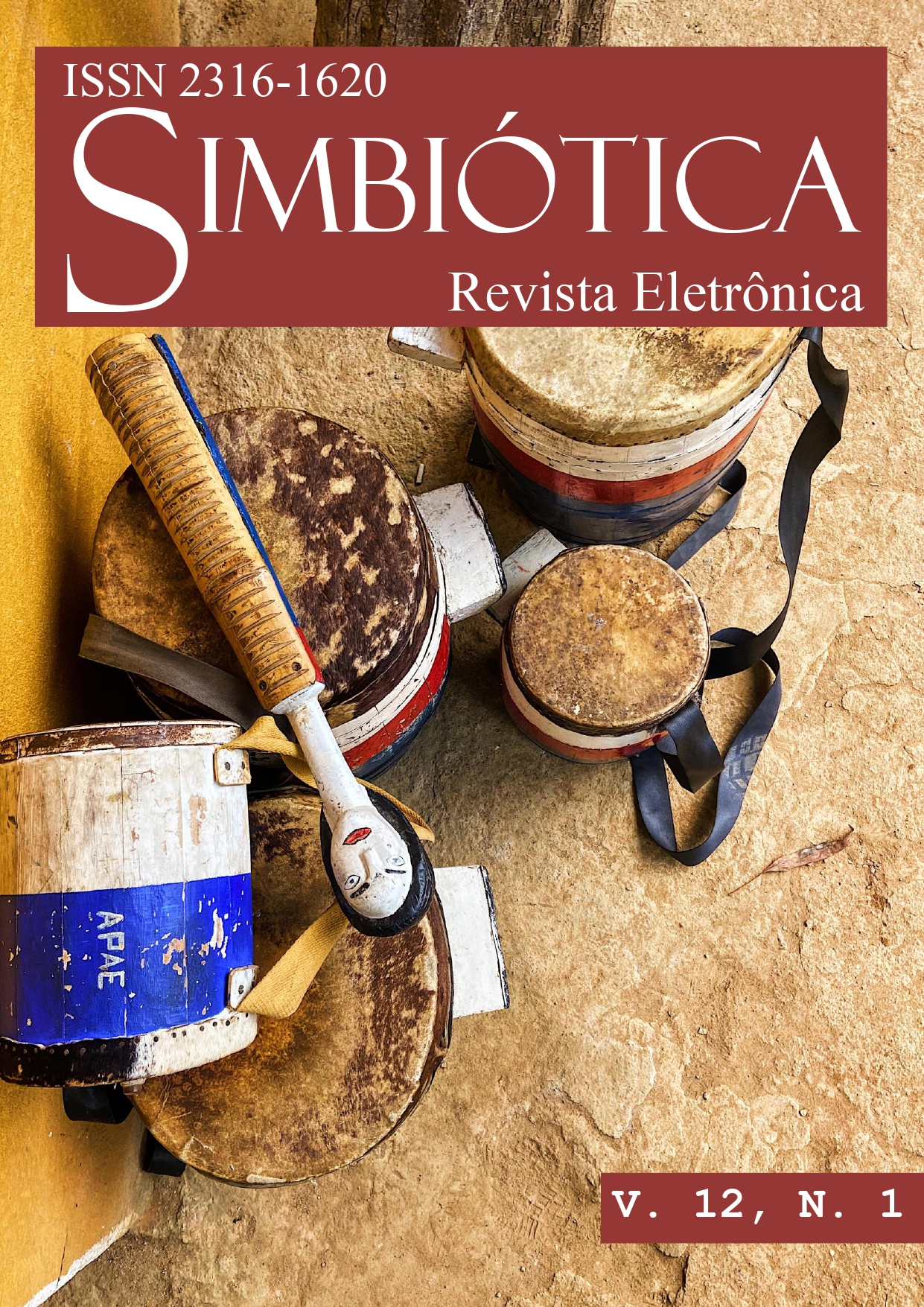Women of the Terreiro
the Tambor de Mina as a talisman of re-existence in the quilombola territory of Santa Rosa dos Pretos (Itapecuru-Mirim/MA, Brazil)
DOI:
https://doi.org/10.47456/simbitica.v12i1.47222Keywords:
Mina Drum. Black women. Enchanted. Resistance.Abstract
This text is a fragment of a doctoral research in Sociology and was only possible due to more than 10 years of writing with quilombola women who are on the front line in the defense of the Santa Rosa dos Pretos quilombola territory, Itapecuru-Mirim/MA, Brazil. This text aims to broaden the debate on the protagonism of quilombola women in their relationship with the quilombola territory and the terreiro. Based on this, Tambor de Mina is a religion of African origin, a safe space and an existential force that emanates from Mother Nature that women activate in the fight against predatory development. Based on the ontologies present in the relationships with the enchanted ones, quilombola women create and recreate possibilities of existence for themselves and their territory. Finally, we consider that this enchanted confluence allows the proposition of other narratives, to speak of us winning, as our master Nêgo Bispo taught us.
References
ANJOS, José Carlos G. (2001). “O corpo nos rituais de iniciação do Batuque”. In: Corpo e significado, ensaios de antropologia social. Porto Alegre, EDUFRGS.
ANJOS, José Carlos G. (2006). No território da linha cruzada: a cosmopolítica afrobrasileira. Porto Alegre, Editora da UFRGS/Fundação Cultural Palmares.
EVARISTO, Conceição. (2017). Becos da memória. Rio de Janeiro, Pallas.
FERRETTI, Mundicarmo. (2008). “Lugares sagrados e encantarias maranhenses”. Boletim da Comissão Maranhense de Folclore, nº 40.
SANTOS, Antônio Bispo dos. (2023). A terra dá, a terra quer. São Paulo, Ubu Editora/PISEAGRAMA.
SANTOS, Dayanne da S. (2019). Não se pode entrar em terra de encantado sem permissão: um estudo sobre a relação entre pessoas e encantados na luta pelo território quilombola Santa Rosa dos Pretos (Itapecuru-Mirim/MA). São Luís/MA, UFMA. Dissertação do Programa de Pós-Graduação de Ciências Sociais da UFMA.
SANTOS, Dayanne da Silva. (2024). Ser-natureza como trincheira: a cosmovivência de mulheres linha de frente da defesa do território quilombola santa rosa dos pretos contra o processo de duplicação da br-135 no município de Itapecuru-Mirim/MA, brasil. Tese de doutorado – Universidade Federal do Rio Grande do Sul.
SESC, Polo Sociocultural Sesc Paraty. (2022). A Fotografia popular por ela mesma. Paraty, RJ, Polo Sociocultural Sesc Paraty.
SILVA, Anacleta Pires; SANTOS, Dayanne da Silva. (2020). Terra de encantados: a luta pela permanência no território Quilombola Santa Rosa dos Pretos (Itapecuru-Mirim/MA). São Paulo, Hucitec.
Downloads
Published
Issue
Section
License
Copyright (c) 2025 Dayanne da Silva Santos

This work is licensed under a Creative Commons Attribution-NonCommercial 4.0 International License.
Autores que publicam nesta revista concordam com os seguintes termos:
a. Autores mantém os direitos autorais e concedem à revista o direito de primeira publicação, com o trabalho simultaneamente licenciado sob a Creative Commons - Atribuição-NãoComercial 4.0 Internacional.
b. Compartilhar - copiar e distribuir o material em qualquer meio ou formato.
Adaptar - remix, transformar e construir sobre o material para qualquer finalidade, inclusive comercial.
c. Autores têm autorização para assumir contratos adicionais separadamente, para distribuição não-exclusiva da versão do trabalho publicada nesta revista (ex.: publicar em repositório institucional ou como capítulo de livro), com reconhecimento de autoria e publicação inicial nesta revista.
d. Autores têm permissão e são estimulados a publicar e distribuir seu trabalho online (ex.: em repositórios institucionais ou na sua página pessoal) a qualquer ponto antes ou durante o processo editorial, já que isso pode gerar alterações produtivas, bem como aumentar o impacto e a citação do trabalho publicado (Veja O Efeito do Acesso Livre).
Authors who publish in this journal agree to the following terms:
a. Authors retain the copyright and grant the magazine the right of first publication, with work simultaneously licensed under the CCreative Commons - Atribuição-NãoComercial 4.0 Internacional.
b. Share - copy and distribute the material in any medium or format.
Adapt - remix, transform and build on the material for any purpose, including commercial.
c. Authors are authorized to take additional contracts separately, for non-exclusive distribution of the version of the work published in this journal (eg, publish in institutional repository or as a book chapter), with acknowledgment of authorship and initial publication in this journal.
d. Authors are allowed and encouraged to publish and distribute their work online (eg.: in institutional repositories or on their personal page) at any point before or during the editorial process, as this can generate productive changes as well as increase the impact and the citation of the published work (See The Effect of Free Access).










